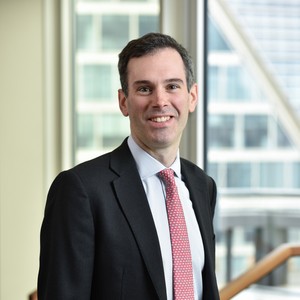Lives
Balham, London
Family
Married
Education
University of Edinburgh (Mathematics) and Ampleforth College
Started at JM Finn
2011
Favourite statistic
If there are 23 people in a room then there is a 50% chance of two people having the same birthday
First Job
End of tenancy cleaning service for father’s estate agency business
Life hack
Packet bread sauce
As someone who joined the firm at a young age can you describe the career progression for youngsters joining the industry today?
The initial hurdle is passing all the exams in order to be able to advise clients. During this time there are opportunities to begin experiencing life as an investment manager by attending client meetings and beginning to do company/fund research. Once the exams have been passed and you have the necessary regulatory requirements you can begin to advise clients more formally. Progression can seem pretty slow compared to other industries, however it is important to get a strong base of knowledge and experience before advising clients and it is then very rewarding to be able to help people on a daily basis. We started a Young Investment Manager forum this year and have concentrated on organising professional development events for solicitors and accountants in order to share our private client experiences.
At JM Finn we primarily invest directly in equities on behalf of our clients but in many instances we use funds. Where do you see funds as a useful tool in portfolio construction?
Collective investments have become an increasingly important part of portfolios. We use them to diversify portfolios by finding the best managers in any particular sector or region. These specialist managers allow us to invest in markets or sectors where we may not have the knowledge or expertise that the managers have.
There are 15 members of the Collectives Research Team all with a different region or sector to research. We produce a list of our preferred funds for all investment managers to use. I, for example, cover Asian equity and Emerging Market equity funds. Investing in markets like these can give us access to parts of the world that have better projected growth rates than more developed markets like the UK.
As head of the Collectives Research Team can you describe the due diligence process that we put third party fund managers through prior to investing in them?
We use specialist tools to screen for funds that have characteristics we think will deliver good performance for clients. From this we can then take a deeper look into the funds to see if they would be a candidate for the preferred list of collectives. This is usually done by meeting managers and reading factsheets/reports. The Collectives Research Team meet every other month to discuss the preferred list, report back on funds we have met and what our colleagues have been buying or selling.
What’s your killer question when meeting a fund manager?
How do you expect to perform in falling markets and what measures have you in place to protect against more difficult times?
When you talk to younger or new investors, what do you find are their concerns when it comes to dipping their toes in the stockmarket?
The biggest worry for most is trying to save for both a house and an investment portfolio and, without the help from the ‘Bank of Mum & Dad’, this can be extremely difficult. It is encouraging to see that many young people are saving large proportions of their income which allows them to begin investing. A focus for many new, young investors is downside protection. Many are leaving school or University around this time, entering a difficult job market and are cautious of history repeating itself.



